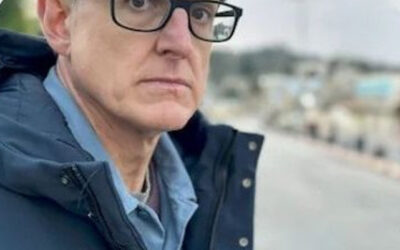Counselors of Collapse – Why the West Keeps Getting Islam Wrong

Western governments are jeopardizing their security and values by relying on advisors who misrepresent the ideological threat posed by Islam. Policies on counterterrorism, immigration, and religious freedom are shaped by individuals who either lack firsthand knowledge of the Islamic world, prioritize protecting its image, or cling to flawed assumptions about its doctrines.
The advisors steering these decisions fall into four camps. First, there are academics from elite institutions where Islamic studies are reduced to a sanitized, romanticized caricature. These programs emphasize poetry, philosophy, and mysticism while ignoring the theological foundations of jihad, Islamic supremacy, and sharia governance. Second, there are nominal Muslims, individuals with cultural ties to Islam but fully immersed in Western liberalism. They advocate for reform and coexistence to maintain their relevance at interfaith forums and policy roundtables. Third, there are activists whose sole mission is to deflect scrutiny, labeling any honest critique of Islam as bigotry. Fourth, there are those who view “Islamism” as a 20th-century political movement that has hijacked an otherwise benign faith. This group insists that Islam itself is peaceful, corrupted only by modern ideological distortions, a convenient but dangerous misreading of history and theology.
Conspicuously absent are the voices who truly understand Islam’s inner workings: ex-Muslims, dissidents, and former radicals who have lived under sharia, faced persecution for apostasy, or studied Islamic jurisprudence in its unfiltered form. These individuals, who have paid a steep personal price for their honesty, are routinely dismissed, silenced, or branded “Islamophobic.” Their exclusion ensures that the West remains blind to the threat it faces.
At the core of this threat lies the Islamic doctrine of Walaa wal-Baraa, loyalty and disavowal. Far from a modern invention, this principle is woven into the Qur’an, Hadiths, and centuries of scholarly consensus. Walaa demands unwavering allegiance to the Muslim community, its laws, and the global supremacy of Islam. Baraa requires the rejection, spiritual, cultural, and political, of non-Muslims and their ways of life. This is not abstract theology; it is a practical worldview that shapes everything from social interactions to, in positions of power, military confrontation.
The West’s insistence on separating “Islam” from “Islamism” is a dangerous fiction, perpetuated by those who mislabel Islamism as a recent aberration. Islamism is not a distinct ideology, it is Islam applied with fidelity. The belief, taught to all Muslims, that Islam is suitable for all times and places inherently demands its dominance over other systems. This conviction fuels jihadist movements, but it also underpins the mindset of doctrinally consistent Muslims, whether they act violently or not. The difference between a terrorist and a believer lies in action, not ideology; the theology remains the same.
Western leaders embrace the term “Islamism” because it provides a convenient scapegoat. It allows them to condemn violence without challenging the religion itself, appeasing those who frame Islam as a victim of modern political hijacking. But Islam is inherently political, inseparable from governance, law, and societal submission. To pretend otherwise is to chase symptoms while safeguarding the source. Counterterrorism strategies rooted in academic theories rather than sacred texts are destined to fail. Immigration policies that overlook the ideological frameworks the newcomers bring sow seeds of future conflict. Funding religious leaders without examining their teachings empowers those who may erode the very freedoms they enjoy.
The real threat is not just terror cells or lone actors, it is a theology that mandates loyalty to Muslims alone and enmity toward all others. This is not a distortion of Islam, nor a 20th-century innovation; it is Islam taken seriously. Until Western governments face this reality, they will remain locked in a futile cycle: banning groups, pursuing radicals, and grieving attacks, all while the ideology that spawns them thrives unchecked.
The path forward demands courage. Policymakers must amplify the voices of those who have lived Islam’s realities, those who have escaped its constraints, challenged its doctrines, or studied its texts without bias. They must subject Islam’s sacred texts to rigorous intellectual and political scrutiny, exposing the doctrines that drive the threat. Anything less is self-deception.
Failure to act endangers not only security but the principles of open, pluralistic societies. The West must listen to those who speak uncomfortable truths and confront the ideology head-on, before the cost of inaction becomes catastrophic.
![]() About the Author
About the Author

DANNY BURMAWI
Danny Burmawi is an Author, speaker, an advocate for religious liberty, and rational thought, a content creator, and social entrepreneur with a passion for transformative media and advocacy.
Related Posts
Why Louis Theroux Got It Wrong
Why Louis Theroux Got It Wrong Louis Theroux’s latest BBC documentary, The Settlers, a follow-up to his 2011 film The Ultra Zionists, has reignited global scrutiny of Israeli settlements in the West Bank. By embedding himself among ultra-nationalist settlers like...
Lebanon: The Forgotten Proof That the Arab-Israeli Conflict Was Never About Land
Lebanon: The Forgotten Proof That the Arab-Israeli Conflict Was Never About Land When Greater Lebanon was established in 1920 under French mandate, its Sunni Muslims population, from Tripoli to Beirut to the southern coast, rejected it immediately. Their objection was...
Islam’s Mere Presence: How an Imported Ideology Destroys Civilization
Islam’s Mere Presence: How an Imported Ideology Destroys Civilization In his book "The Ominous Parallels", Leonard Peikoff demonstrated a profound truth: history is shaped not by brute force alone, but by ideas. When irrational, collectivist, and self-sacrificial...


